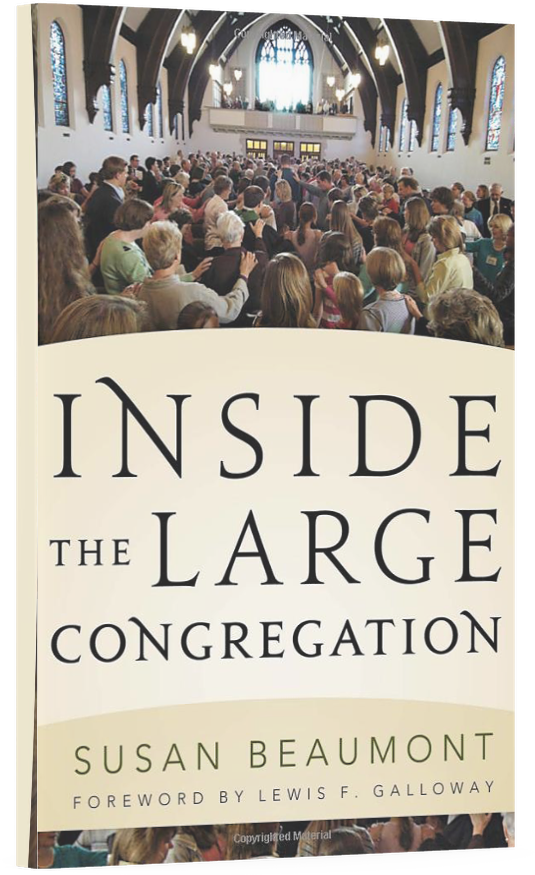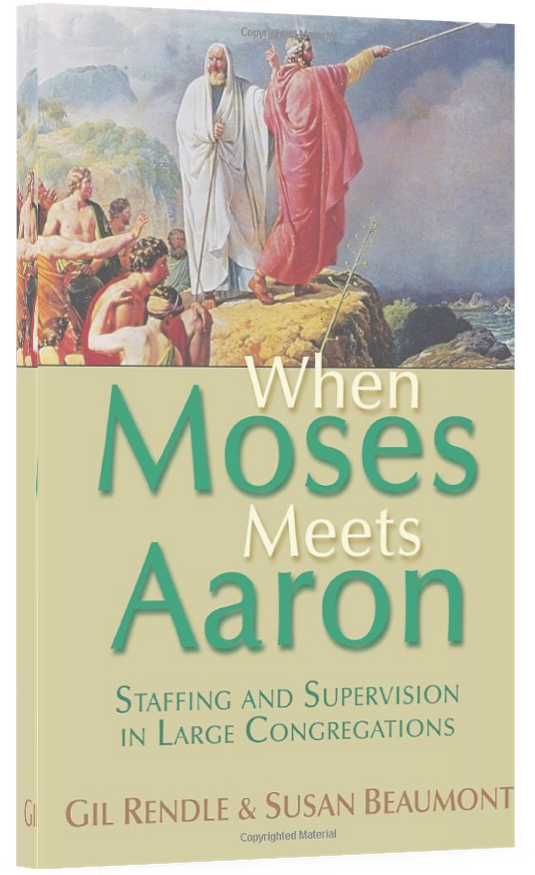
In the past month I’ve been in three different congregations who are all grappling with some version of the following question; how do we keep track of where and when our clergy staff is working? Everyone becomes defensive when the question is raised.
Clergy staff takes offense. In the posing of the question it seems that someone is accusing staff of not working hard enough or long enough. In response, clergy often reiterate long held positions about clergy life. “This is a calling, not a job. We work ridiculously long hours most days and we are expected to be available to the congregation at all hours of the day and night. Having some flexibility in when and where we work is a minor trade-off for the personal sacrifices we make on behalf of the congregation.”
Congregational leaders and heads of staff take offense on the other end of the argument. “Clergy leaders are employees of the congregation. The congregation has a right to know when and where its employees are working. The head of staff needs to know where each staff member is at any given point in time, in order to effectively coordinate coverage of the church office, hospitals, and unexpected pastoral care emergencies. It’s a matter of good stewardship and accountability. Some people abuse the system and unfortunately that means that we have to create better methods of keeping track of everyone.”
This week one wise pastor I spoke with pointed out the generational component in this struggle. Older members of the staff team and the congregation have a different kind of psychological contract about ministry. For older generations of ministers, work happens best within the context of a church building or hospital, where people can engage one another face to face. Home life is tended primarily by a spouse with significant time at home. Personal life and church life don’t interact on a daily basis. Ministers go into ministry with a clear understanding that it’s a profession that requires a lot of personal sacrifice.
Clergy leaders under the age of 40 are usually partners in two career working families. The clergy leader has significant household and family responsibilities to tend to in addition to their daily church responsibilities. The best ministry work of the week often happens from home, where the clergy leader is uninterrupted by the busyness of the office and where technology provides a virtual office environment. These leaders believe that the congregation has a right to expect a fair days work, but the congregation doesn’t have a right to expect the whole family to sacrifice itself.
This dialogue seems to be a classic illustration of the kind of challenge that leadership guru, Ron Heifetz, refers to as an adaptive problem in his book “Leadership on the Line”. Adaptive problems are not amenable to authoritative expertise or standard operating procedures. They cannot be solved by someone who provides answers from on high. They require experimentation, new discoveries and adjustments from numerous places in the congregation.
Case in point: the three congregations who have shared this dilemma with me are remarkably talented congregations who solve many technical problems on a day to day basis. If the answer to this question were easily solved through the application of some simple time keeping mechanism, they would have fixed the problem by now. Adaptive problem solving requires that we resist simple technical fixes to the problem and engage instead in reframing our dialogue, so that we can better understand the dilemma and allow creative new approaches to emerge. So, instead of asking the question, “How do we keep track of staff,” why not frame questions to invite deeper learning:
- Is the nature of the employment relationship different for ordained clergy than it is for other salaried or hourly employees? Is so, how is it different?
- What does an “accountable relationship” between congregation and clergy look like?
- What do we consider a reasonable work week for our clergy staff?
- What hours/days of the week does a congregation have a right to expect an accounting of?
- Is the number of hours worked by clergy in the accomplishment of their work an important thing to keep track of? Why?




It seems like another understanding I’ve noticed that needs tending is the “clergy work can happen in many places; office, library, coffee shop, hospital, homes, (and yes, the clergyperson’s home can be a workplace, too, although there are almost as many distractions in the average home as in a church office) so just because someone is not in the office when you drop in doesn’t mean they are not working!
It seems like another understanding I’ve noticed that needs tending is the “clergy work can happen in many places; office, library, coffee shop, hospital, homes, (and yes, the clergyperson’s home can be a workplace, too, although there are almost as many distractions in the average home as in a church office) so just because someone is not in the office when you drop in doesn’t mean they are not working!
Absolutely, Christine. Here’s the challenge. Where does that dialogue and understanding building take place? It’s one thing to get clarity between head of staff, staff team member and personnel committee. The real challenge is with the congregation member who perceives that the “minister is never in the office when I drop by”. How do we educate those people about a new psychological contract between clergy and congregation?
Absolutely, Christine. Here’s the challenge. Where does that dialogue and understanding building take place? It’s one thing to get clarity between head of staff, staff team member and personnel committee. The real challenge is with the congregation member who perceives that the “minister is never in the office when I drop by”. How do we educate those people about a new psychological contract between clergy and congregation?
I have let people know that I write the sermon on Thursdays and this has gone over pretty well. People have learned that Thursday is sermon writing day. Wednesday morning is staff meeting. Pastor’s Bible study is Friday morning. Most core people have an idea when I might be available and how they might contact me.
I know a very large congregation where the pastor does pastoral care in his office on Tuesday afternoons and people know that if they want to see him they have to book an appointment. That wouldn’t work in my setting, but it does there.
I have let people know that I write the sermon on Thursdays and this has gone over pretty well. People have learned that Thursday is sermon writing day. Wednesday morning is staff meeting. Pastor’s Bible study is Friday morning. Most core people have an idea when I might be available and how they might contact me.
I know a very large congregation where the pastor does pastoral care in his office on Tuesday afternoons and people know that if they want to see him they have to book an appointment. That wouldn’t work in my setting, but it does there.